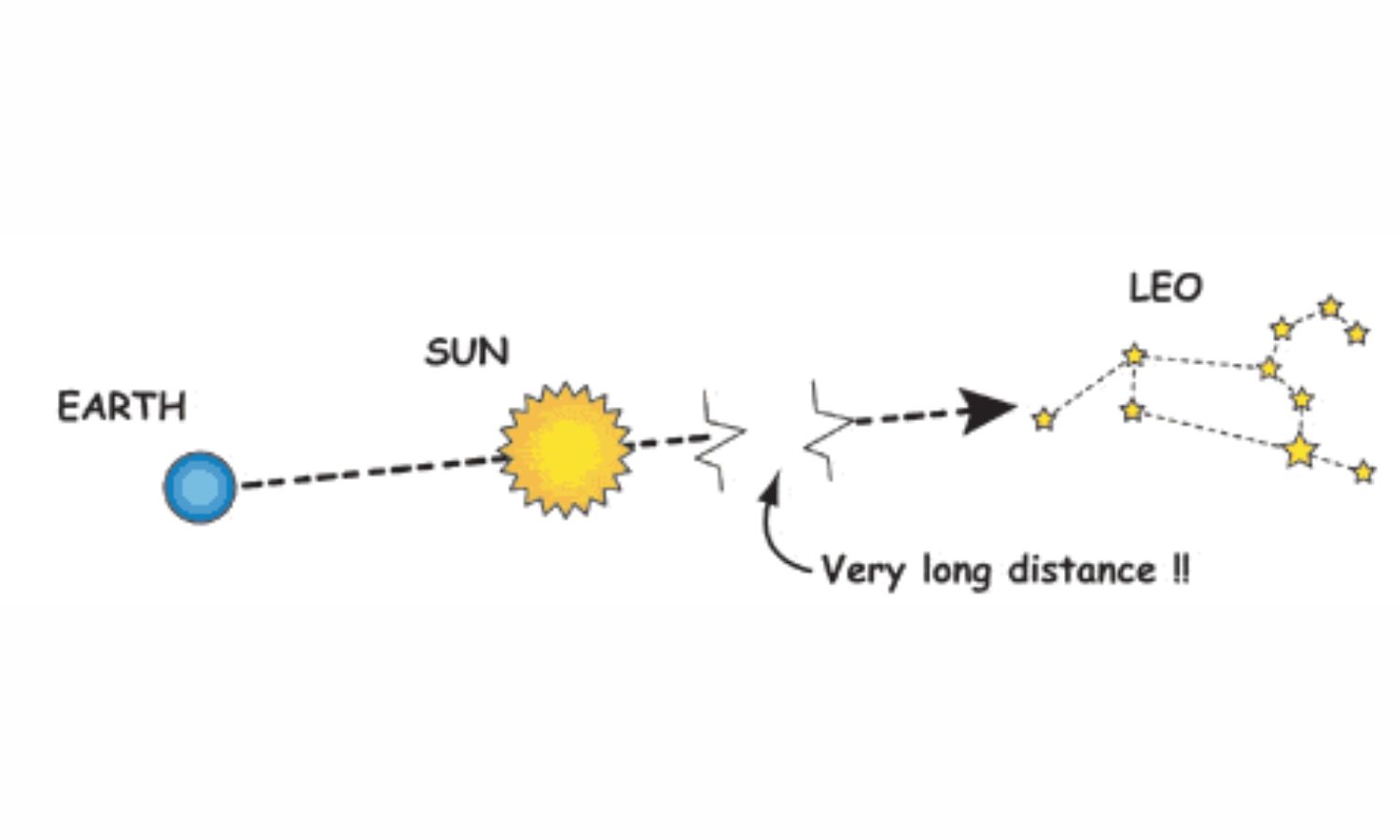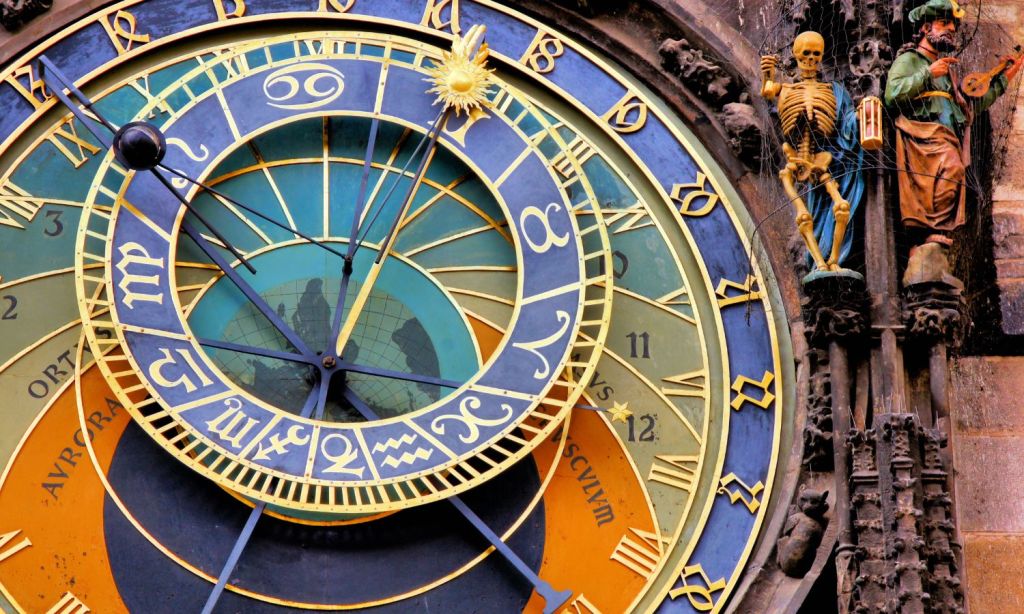Do you know your star sign? Chances are, you probably do.
How about your sun sign? Or your moon sign? Or the supposed characteristics of each Zodiac identity and how they interrelate with each other? In 2023, it’s not that uncommon to have this kind of stuff memorised or even rely on it for guidance in big life decisions.
Astrology is having a real moment. A recent Washington Post article describes the belief in the practice as “booming” amongst Gen Z and Millenials. The ‘astrology industry’, made up of people peddling star charts, books, zodiac-focussed apps, and all sorts of other clutter, has grown globally from a $3.25 billion dollar business in 2018 to an $18.8 billion behemoth in 2021.
A 2022 YouGov Poll found that more than a quarter of Americans believe in astrology, rising to more than a third in the under-30 category. In Australia, the data is pretty ropey, with the latest states coming from 2009. Still, that Nielsen poll found that 41% of us believe in Astrology.
A lot of ink, or keystrokes, have been spent on the recent trend. Many put the rise in astrology down to a sign of the times. Younger generations are growing up in a world devoid of reasonable authority figures, declining standards of living, and vanishing prospects for a habitable future. It makes sense, then, why more of us are turning to ancient mysticism, something seemingly shrouded in wisdom and universal security, for guidance.
The pandemic, leaving many at a desperate loose end, seeking answers, supercharged all of this as technology made it easier to access apps like Co-Star along with astrology podcasts, meme pages, and influencers.
The rise in such beliefs is, however, troubling. Here we’re going to dig into exactly why astrology is completely devoid of any scientific backing and should probably be treated with about the same level of seriousness as mind reading.
Why Is Astrology Nonsense?
People have always looked up at the stars and believed that their movements across the sky have some impact on the way we live our lives. Indeed, they’re not wrong.
The changing patterns in the night sky as the Earth moves through its orbit around the sun can be used to track the shift in seasons, giving a good indication of when to plant and harvest crops. They’re also incredibly useful for navigation and orientation.
But some ancient people went further than this. The Babylonians, nearly 4,000 years ago, divided the year up into 12 signs, describing the kinds of animal parts you should use to treat illnesses during these phases of the year.
The Ancient Greeks picked this up and ran with it, adding layers of complexity and meaning to the practice, including moon signs, sun signs, and the four elemental houses. This is where Western astrology gets its start.
Despite thousands of years of opportunity to find evidence for the idea that the position of the stars has any impact on human existence, generations of scientists have only ever been able to describe it as pseudoscience, at best, and complete nonsense at worst.
That, however, has not stopped the belief from growing in popularity. In 2016, NASA took time out of its busy schedule of doing actual science to write a verbal smackdown of astrology after reports that people were annoyed at the space organisation for “changing the star signs.”
“We didn’t change any zodiac signs…we just did the math,” the American space agency wrote in a blog post on Tumblr, of all places.
The way they describe it, astrology is based on the incorrect belief that stars we see have some relation to each other, forming patterns we attribute meaning to…. if you kind of squint and use your imagination a bit.
“Even the closest star is almost unimaginably far away,” NASA wrote, explaining that some stars that look to be in a line are really vast distances away from each other because they, you know, exist in three dimensions.

In what really should have been the final word on astrology, they also wrote that the reason people were annoyed at them is because the Zodiac signs, as made up thousands of years ago, have shifted from where they originally were. NASA simply pointed this out.
“When the Babylonians first invented the 12 signs of the zodiac, a birthday between about July 23 and August 22 meant being born under the constellation Leo. Now, 3,000 years later, the sky has shifted because Earth’s axis (North Pole) doesn’t point in quite the same direction,” they said.
Meaning the Zodiac sign you think influences your life isn’t the one you were actually born under.
In addition, the Babylonians had to do some finessing to make the star signs fit into their 12-month calendar. They knew there are actually 13 different patterns in the sky that the Earth points towards, but they just left one, Ophiuchus, out to tidy the whole thing up.
What’s more, the signs don’t fit at all neatly into 12 months, even if you knock out poor Ophiuchus. The North Pole points to Virgo for 45 days, but it only points to Scorpius for seven.
All of this is to say that, without having to get into empirical testing, which people have done, the whole concept of astrology fails on its own terms, given it’s not even based on what it claims to be.
Why Is Astrology So Accurate?
The real question, then, is why is astrology so seemingly accurate. Why do people still believe it? If astrology is nonsense, why does almost everyone have a story about a horoscope or an astrology reading that proved to be scarily on point?
The reasons have to do with a conflation of science and human psychology.
Horoscopes, star signs, and other celestial patterns are like one of those Rorschach inkblot tests where people view a random pattern and attribute meaning to it. Humans are very good at seeing patterns in random things as, evolutionarily, this kept us alive. It’s better to see the face of a tiger in a random assortment of leaves than it is to miss it. This ability is called pareidolia, and it’s why we see Jesus in a piece of toast.
In addition, astrology is kept suitably vague so as to appeal to anyone and everyone. This is known as the Barnum effect, whereby people identify with general descriptions of things, believing they are individually meaningful to them. It’s named after the famous showman, P T Barnum, who used it to convince people he had psychic powers. It’s also why Tarot cards and supernatural mediums seem to work.
If you know an Aquarius, Taurus, Scorpio, Leo
Show them some extra love and comfort at this time, they are being hit hard from the astrology transits going on and may be feeling more anxious than usual. Reach out to them.
— 💖 (@Cosmicenergy_) June 7, 2023
Astrology can seem accurate because people contain multitudes and can be many things at once. The Barnum effect explains why you can relate to typical Zodiac sign descriptions of yourself as both an “independent thinker” who also likes to maintain strong social connections. As psychologist Bertram Forer said in describing the trait in 1949:
“The individual is a unique configuration of characteristics, each of which can be found in everyone, but in varying degrees.”
Still, star signs do seem to line up with personality types – Barnum effect accounted for. There is some evidence for the idea that the time of year you’re born plays a role in how your personality is shaped. This makes sense, given that, depending on your state, the month you’re born in will determine if you’re the oldest or the youngest child in your school year. It also might influence what kinds of sports you take up or whether you spend half the year waiting between your birthday and Christmas or get both celebrations in one go.
The fact that astrology is so vague may be part of its appeal. Unlike monotheistic religions, astrology simply lets you pick and choose what ‘speaks’ to you. Like Tarot, people are presented with a random assortment of non-correlated things and pull meaning from them. If a horoscope tells you that money is going to be important to you, and you’re stressed about money, you might then consider this something to focus on and rectify.
This isn’t necessarily bad as a general way of finding presence and clarity in your life, as long as you don’t put too much stock in it. In fairness, most people who believe in astrology typically don’t make radical and uncharacteristic choices based solely on what the planets are up to. It’s more of a guide for most believers.
Where the danger lies is in a general shift towards non-rational thinking and a rejection of science – including Western medicine, something we saw a surge in during the pandemic. This is something that Sten Odenwald, an astronomer at NASA, decries in the Washington Post article, saying that it’s “painful” as a scientist, to see people fall into such traps.
Zodiac signs that will have the most success, status and influence 2023 to 2030.
-Leo
-Taurus
-Cancer
-Aquarius
-Capricorn— VK ASTROLOGY (@DCnumerology) June 6, 2023
In addition, there’s that $18.8 billion that the astrology industry is worth, something that’s only expected to double by 2031. Money spent here by people who believe in what astrologers tell them moves from the ‘quirky but harmless’ territory and into the predatory.
As so why it’s so popular right now, part of the reason is that companies will play into whatever is trendy at the time. Hence the boom in astrology-related tattoos, clothing, brand campaigns, and social media posts. It’s a self-perpetuating cycle with little attention or care given to the scientific basis of such claims.
While there is clearly a space for astrology, as far as it makes people feel good about themselves or help them to see a problem in their life from a different angle, it’s also true that grounding all of that in the truth that none of it is actually real is necessary. The planets and the stars have less of an impact on you than the food you eat, the sleep you get, and the company you keep. Those things should also be of primary importance in figuring things out.
Of course, I would say that, though. As a Gemini, I am notoriously stubborn.
Related: Crystal Healing and Wellness — Does It Work If They Aren’t Ethically Sourced?
Related: Scam Calls and Texts Are on the Rise — Here’s How You Can Stop Them Finding You
Read more stories from The Latch and subscribe to our email newsletter.







